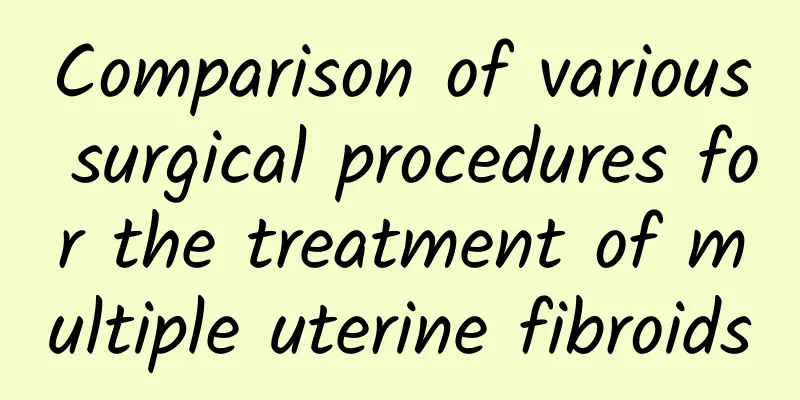Can I still get pregnant after having a uterine cyst removed?

|
Pregnancy is still possible after uterine cyst removal, but the specific situation needs to be evaluated based on the type of cyst, surgical method and postoperative recovery. After surgery, you should follow the doctor's advice for regular checkups, adjust your lifestyle, and undergo assisted reproductive treatment if necessary. 1. The impact of uterine cyst type on pregnancy: Uterine cysts include functional cysts, endometriosis cysts, etc. Functional cysts usually do not affect fertility, while endometriosis cysts may damage ovarian function and affect pregnancy. Ultrasound examination and hormone level monitoring are required to evaluate ovarian function after surgery. 2. Choice of surgical method: Laparoscopic surgery is a common minimally invasive surgical method with less trauma, faster recovery, and less impact on ovarian function. Open surgery is suitable for larger or complex cysts, but may cause greater damage to ovarian tissue. After surgery, attention should be paid to ovarian reserve function, and ovarian function assessment should be performed if necessary. 3. Postoperative recovery and timing of pregnancy: The postoperative recovery period is usually 3-6 months, and the specific time varies from person to person. After surgery, you should avoid strenuous exercise, maintain a good work and rest schedule, and eat a balanced diet to promote physical recovery. Before pregnancy, you need to undergo a comprehensive prenatal checkup to ensure that your physical condition is suitable for pregnancy. 4. Application of assisted reproductive treatment: For patients with impaired ovarian function after surgery or difficulty in natural pregnancy, assisted reproductive technology, such as ovulation induction therapy, artificial insemination or in vitro fertilization, can be considered. These methods can increase the success rate of pregnancy, but they must be performed under the guidance of professional doctors. The possibility of pregnancy after uterine cyst removal depends on many factors, including the type of cyst, the surgical method and the postoperative recovery. After surgery, you should follow the doctor's advice for regular checkups, adjust your lifestyle, and undergo assisted reproductive treatment if necessary to increase the success rate of pregnancy and ensure the health of mother and baby. |
<<: What is the cause of ovulation bleeding during puberty?
>>: What to do with pelvic fluid accumulation after cystectomy
Recommend
What are the early symptoms of cervical erosion in women? How to deal with early inflammation of cervical erosion in women?
What are the early symptoms of cervical erosion? ...
What should I pay attention to when having cervical warts during menstruation?
There are many diseases in life, big and small, i...
The endometrium is too thin, what are the hazards to women preparing for pregnancy
We all know that only a healthy uterus can give b...
What are the ways to prevent endometriosis?
Endometriosis is a disease known as a devil. Mens...
Is second degree cervical erosion serious?
Second degree cervical erosion is generally not s...
What are the main features of abortion surgery?
Although we often hear about abortion, we don’t k...
How to take good care of cervical erosion during pregnancy Three principles of health care for cervical erosion during pregnancy
How to take good care of yourself during pregnanc...
Which is less harmful, surgical abortion or medical abortion? Let's find out
Generally speaking, many women who have an unexpe...
What are the characteristics of vulvar leukoplakia? The main symptom of vulvar leukoplakia is vulvar itching.
The main symptom of vulvar leukoplakia is vulvar ...
Atopic dermatitis patients run to good health! Chang Gung Yongqing Cup Road Race will start simultaneously in four locations on 9/22
Atopic dermatitis is a chronic, recurring inflamm...
What should patients with vulvar leukoplakia pay attention to in daily life?
What should patients with vulvar leukoplakia pay ...
This will easily increase your metabolism! 2. Twisting exercise can also be done in the bath
Because water has buoyancy, soaking in water allo...
How to prevent chronic cervicitis and infertility? Five issues to pay attention to when treating chronic cervicitis
Chronic cervicitis is usually caused by exogenous...
Increase immunity and disease resistance, garlic and onion are on the list! Doctor: Use it with caution when cooking, don’t eat it in excess
In order to prevent the epidemic, many people hav...
Is it healthy to eat salads and dried fruits? 4 unexpectedly high-calorie foods
Many people don’t know what they can and cannot e...









